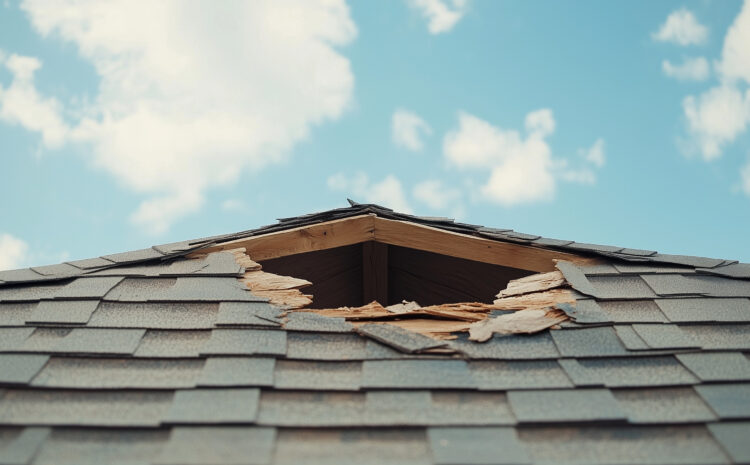
What Landlords in Rhode Island Need to Know About Property Damage Insurance
As a landlord in Rhode Island, owning rental properties comes with a host of responsibilities. One of the most critical aspects of property ownership is ensuring that your rental units are protected from unexpected damages. Whether you’re managing single-family homes, multi-unit buildings, or vacation rentals, property damage can occur at any time—due to accidents, tenant negligence, natural disasters, or unexpected wear and tear. This is where landlord property damage insurance comes into play.
Property damage insurance is a crucial part of your insurance portfolio as a landlord. It offers financial protection against costly repairs and liability claims, helping you mitigate risks and avoid out-of-pocket expenses. In this article, we’ll explain why landlord property damage insurance in Rhode Island is essential, what it covers, and how it can protect your rental units from the unexpected.
1.Why Property Damage Insurance is Crucial for Landlords in Rhode Island
As a landlord, your primary goal is to protect your investment and ensure the safety and well-being of your tenants. Property damage insurance helps you achieve both. Without adequate coverage, you could face significant financial losses that may disrupt your ability to maintain and manage your rental properties effectively.
Here are a few reasons why landlord property damage insurance is essential:
a. Protection from Natural Disasters and Weather Events
Rhode Island is no stranger to extreme weather events. From heavy snowstorms in the winter to hurricanes and flooding during the warmer months, the state’s weather can be unpredictable. Natural disasters like these can cause severe damage to your property, leading to expensive repairs. Property damage insurance provides coverage for these unpredictable events, helping you recover quickly and minimizing your out-of-pocket expenses.
b. Protection Against Tenant Negligence
Tenants may inadvertently cause damage to your property—whether it’s a leaky pipe, broken windows, or structural issues from improper use. While most tenants will care for the property, accidents do happen, and tenant negligence can lead to costly repairs. Landlord property damage insurance can help cover these unexpected costs, ensuring you’re not left holding the bill.
c. Minimize Financial Risk
The cost of repairs after property damage can be overwhelming, especially if you own multiple rental units or have expensive property features like high-end flooring, appliances, or HVAC systems. Without insurance, you would be forced to cover these costs on your own, which could significantly affect your bottom line. Property damage insurance helps safeguard your financial stability by covering repairs, replacement costs, and sometimes even lost rental income.
d. Legal Protection and Liability Coverage
In addition to covering the physical damage to your property, property damage insurance may also provide liability coverage. For example, if a tenant or visitor is injured due to damage or neglect on your property, you could be held liable. Liability coverage is critical to protecting you from potential lawsuits and medical expenses. This legal protection ensures that you’re covered in the event that your property causes harm or injury.
2.What Does Landlord Property Damage Insurance Cover in Rhode Island?
Landlord property damage insurance in Rhode Island is designed to protect property owners from a wide range of damages. Here are some common situations that may be covered by property damage insurance:
a. Fire and Smoke Damage
Fires are one of the most common causes of property damage, and they can spread quickly. Property damage insurance typically covers repairs to the structure of the building, along with the replacement of damaged contents. Whether it’s an electrical fire or tenant negligence that leads to a fire, insurance can provide much-needed financial relief.
b. Water and Flood Damage
Water damage, whether from burst pipes, leaks, or flooding, can result in significant structural issues, mold growth, and ruined belongings. While standard property damage insurance may cover water damage due to plumbing issues or leaks, it’s important to note that flood damage may require a separate flood insurance policy, especially if your property is located in a flood-prone area. Check with your insurer to understand the specific coverage options available.
c. Vandalism and Theft
Unfortunately, rental properties can sometimes be subject to vandalism or theft. If tenants or intruders cause damage to your property or steal valuable items, property damage insurance can help cover the repair or replacement costs. This protection helps ensure that you won’t be financially burdened by acts of vandalism or criminal activity.
d. Storm Damage
Severe weather, such as heavy winds, hail, or even snowstorms, can cause damage to your rental property. Roofs, windows, and siding may be compromised, leading to costly repairs. Property damage insurance can help cover repairs to the exterior and interior of the building after a storm.
e. Tenant-Caused Damage
Accidental damage caused by tenants, such as broken windows, holes in walls, or carpet damage, can be expensive to fix. Landlord property damage insurance can cover this type of damage, which helps protect your financial interests and ensures you won’t have to pay for these repairs out of pocket.
f. Loss of Rental Income
If your property is rendered uninhabitable due to significant damage, you may lose rental income while repairs are underway. Some property damage insurance policies offer “loss of rent” coverage, which reimburses you for the lost income during the repair period. This can be an invaluable addition to your policy, especially if repairs take time.
3.How Much Coverage Do You Need for Your Rental Property in Rhode Island?
The amount of coverage you need for your rental property in Rhode Island will depend on several factors, including the value of your property, the type of tenants you have, and the risks specific to your location. To determine the appropriate coverage, consider the following:
a. Property Value
The replacement cost of your property is one of the most important factors in determining your coverage amount. Make sure your property damage insurance policy covers the full replacement value of the building and its contents. This will ensure that you’re adequately protected in case of significant damage.
b. Tenant Type and Property Condition
The condition of your rental property and the type of tenants you have can impact the level of risk. For example, a property in an area prone to flooding may require higher coverage for water damage. Additionally, if you rent to college students or individuals who may be less experienced in taking care of a property, you may want to increase your coverage to account for potential accidental damages.
c. Add-Ons and Riders
Depending on your needs, you may want to consider add-ons or riders to your property damage insurance policy. These can include additional coverage for flood damage, earthquake damage, or higher liability limits for potential injuries that occur on your property.
d. Local Risks
Rhode Island, like many coastal states, faces unique risks due to its proximity to the ocean. Hurricane season can bring strong winds and flooding, while saltwater exposure can also damage building materials over time. Assessing the local risks and working with an insurance provider familiar with Rhode Island’s weather patterns will help ensure that you have the right coverage for these potential threats.
4.How to Protect Your Rental Units in Rhode Island
In addition to securing property damage insurance, there are other measures landlords in Rhode Island can take to protect their rental units:
- Tenant Screening: Properly screening tenants can help you reduce the risk of property damage. Ensure that your tenants are responsible and have a history of taking care of rental properties.
- Regular Inspections: Regular property inspections allow you to catch any potential maintenance issues early and ensure that tenants are maintaining the property. Documenting the condition of the property at the beginning and end of each lease term can also help prevent disputes over damages.
- Clear Lease Agreements: Make sure your lease agreement clearly outlines the tenant’s responsibilities for maintaining the property and reporting any damage. Having clear terms helps avoid misunderstandings and establishes who is responsible for repairs.
- Maintenance and Upkeep: Keep your property in good condition with regular maintenance, such as roof inspections, plumbing checks, and landscaping. Preventative care can help avoid significant damage in the future.
5.Conclusion
As a landlord in Rhode Island, protecting your rental properties from unexpected damage is crucial for your financial stability. Landlord property damage insurance provides essential coverage for a wide range of risks, including natural disasters, tenant negligence, vandalism, and more. With the right insurance policy, you can safeguard your investment, minimize financial risk, and ensure that your rental units remain safe, livable, and profitable for years to come.
To protect your rental properties and ensure you’re adequately covered, speak with an experienced insurance agent who understands the specific needs of landlords in Rhode Island. With the right property damage insurance, you can rest easy knowing that your investment is secure—no matter what unexpected situations arise.
Contact your insurance provider today to learn more about property damage insurance and how it can help protect your rental units in Rhode Island!

